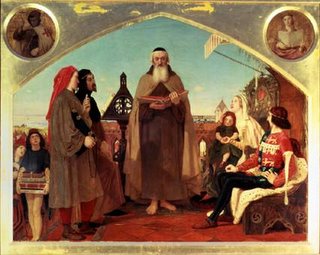John Huss - Part 1

John Huss was born circa 1371 in a small Bohemian town called Husinetz (now part of the Czech Republic). Although born a peasant, he received an excellent education at the University in Prague where he earned a reputation as a gifted scholar.
It was during his student years that he was introduced to the philosophical writings of Wycliffe. At the age of 32, Huss was ordained to the priesthood, and, two years later, he became rector of the university. The year was 1402.
Huss began preaching at Bethlehem Chapel in Prague. This unique chapel was a place where common folk could hear preaching in their own language. At the time, most people, including clergy, spoke little Latin, the only language in which the Roman Catholic Church would allow the Scriptures to be heard. It was during this time that Huss discovered the religious writings of Wycliffe—he immediately adopted them with zeal.
With the backdrop of the Great Schism, Huss began, in his sermons, to denounce various church abuses—matters of discipline and practice. Through these fiery sermons in the Bohemian language, Huss developed a widespread following.
The Teachings of Huss
Huss is credited with bringing the teachings of Wycliffe to Bohemia. Wycliffe’s influence can be seen in many of the doctrinal positions for which Huss is most known:
- He objected to church officials expanding their powers beyond the church to include earthly government
- He called for the church to return to the poverty and simplicity of Apostolic times
- He denied the infallibility of an immoral pope
- He advocated the giving of both the bread and the wine of the Lord’s Supper to all Christians in good standing (this was in response to a practice that had developed where only the bread was being administered to the laypeople)
- He stressed the doctrine of predestination
- He asserted that Scripture, not the church, held ultimate authority
- He accorded the state the right to supervise the church
- He wrote that Christ, not Peter, was the foundation of the church
Stay tuned for part 2!
--The Catechizer
Labels: History, Reformation




0 Comments:
Post a Comment
<< Home